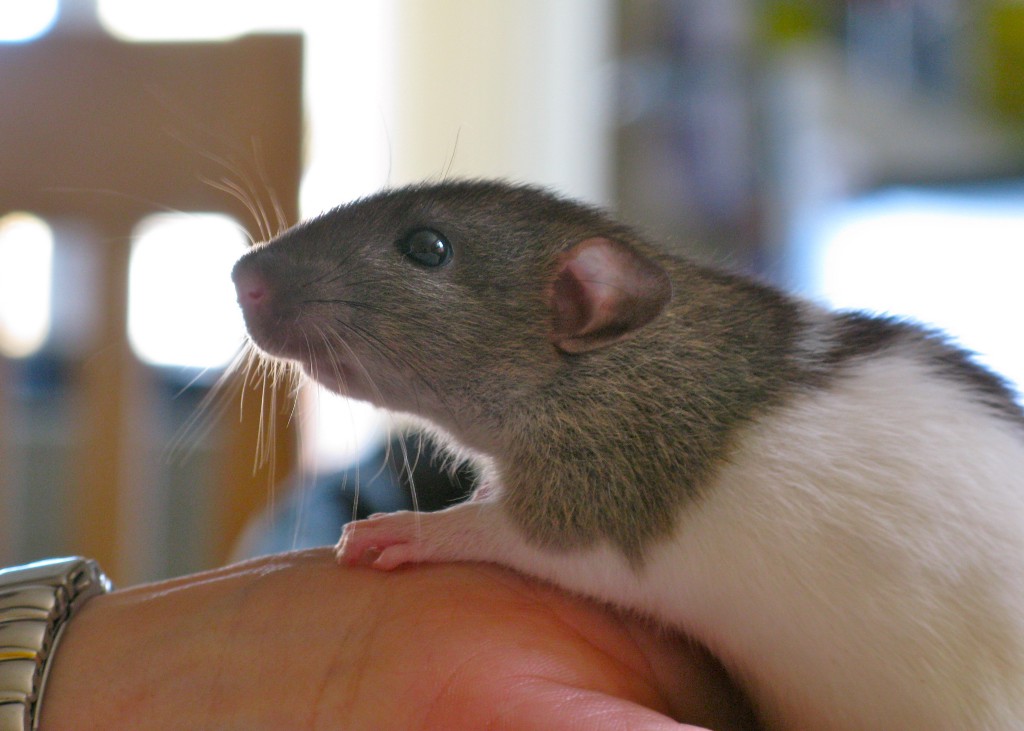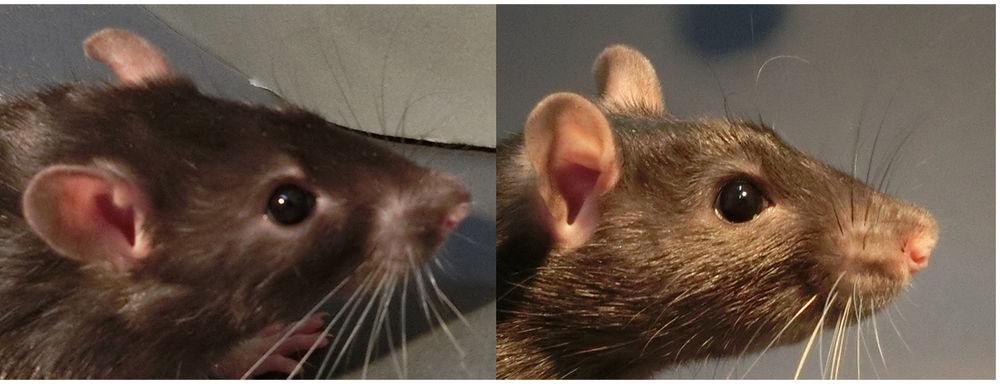Tickling Rats For Science
What does a laughing rat sound like?

If you’re thinking of endearing animals, rats might not be your first pick, but when an experiment’s premise is “We tickled rats to see if they like it,” it’s hard to deny the novelty. This fall, a study published in the journal Science announced that neuroscience researchers had confirmed rats generally enjoy being tickled. During a tickle, they raise their voices up to the 50 kilohertz pitch range, which is the same high tone of voice they use when they’re greeting each other or are in a good mood (it’s nearly 30 kilohertz higher than the tone they use when they’re annoyed, and imperceptible to human ears). This, the scientists concluded, is essentially a laugh. Think of how a human’s voice might go higher if they’re talking to a dog or a baby—it’s involuntary, and is usually intended to signal, “This interaction is pleasant for me.” The same seems to be true for a rat.
When you stop tickling them, they follow your hand until you start again, and if they’re really hyped up off a tickle, they’ll even jump for joy. National Geographic has a video that shows what I mean (start at 1:00 for the sounds; Ed. note: normally this would be embedded but National Geographic wants your ):
Using these findings as a foundation, a team at Switzerland’s University of Bern has set out to see if they can identify positive emotions in rats, and it seems like the answer is “Yes.” By essentially: 1) observing a rat pre-tickle, 2) tickling the rat, and then 3) observing her post-tickle, researchers were able to track different physical cues that might tip us off to a rat’s mood.
The biggest clue is the ears. When a rat’s ears are pink and held at a wide angle (out to the sides, listening to her general surroundings), she’s in a good mood. If her ears are paler and up at attention (pointed at one specific source), she’s probably more tense.

It’s pretty straightforward. The same way you can look at someone from across the room and get the gist of what’s going on with them from their facial expressions and body language, rats are unknowingly signaling their moods to us too.
So the next time you see one of these guys on the subway platform or darting past you on the sidewalk, keep your eyes peeled for their ear position—they might be just as grossed out by you. Don’t tickle them, though.
